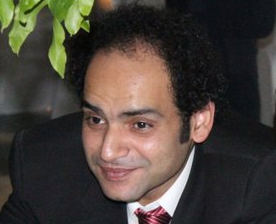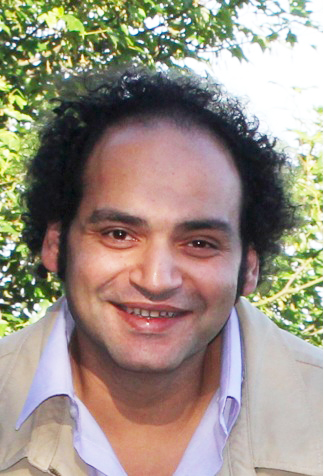
A big day awaits the Muslim Brotherhood on 30 June. Sometimes when I look back at the events of the past two years, I realise how well-prepared the Muslim Brotherhood was. Since the Brotherhood was certain Hosni Mubarak’s regime would not compensate it for refraining from joining demonstrations, the Islamist group moved on to their backup plan, which explains most of the Muslim Brotherhood’s decisions over the past two years.
Political manoeuvring by the Brotherhood, specifically during the transitional phase under the Supreme Council of the Armed Forces’ (SCAF) rule, were thoroughly thought out and carefully coordinated in a balanced performance. The Brotherhood was well-adapted to several sudden political changes in a way that either shows political brilliance or demonstrates their deep involvement and participation in organising such changes.
However, what the Brotherhood could not foresee and what their informants failed to realise was a group of youngsters massing signatures to prove the desire of millions of Egyptians to remove Mohamed Morsi from the presidency. Tamarod was an absolute surprise for the Muslim Brotherhood. Probably what was more surprising than the emergence of the movement was the threatening momentum it had gained. The Brotherhood was equipped and prepared to engage the usual political and popular actors, primarily the National Salvation Front and a number of independent movements and coalitions. But the Islamist group was not prepared to face a movement like Tamarod.
The increasing number of Tamarod supporters has caused panic within the Brotherhood, resulting in Islamist figures making false accusation against the petition campaign in a clear attempt to discredit the movement. The constant threats made by Islamists to those who will demonstrate on 30 June are another sign of the impact Tamarod is having. This threat of violence reflects the Islamists’ aim to deter protesters, whether political activists from different movements, parties and coalitions or specifically non-politicised citizens who started showing signs of support for Tamarod including participating in protests. The Muslim Brotherhood’s obvious concern about the increasing number of protesters is another sign of how unprepared the Muslim Brotherhood is for 30 June.
Things became increasingly complicated for the Muslim Brotherhood since Morsi took office in June 2012. First, the Brotherhood has been incapable of creating new political alliances or even maintaining old ones. How the Muslim Brotherhood oversaw the fragmentation of the Salafi Front is a main reason behind the division between the Muslim Brotherhood and a significant percentage of Salafi political forces. At the same time, the Brotherhood lost the ability to use the revolutionary discourse to try and consolidate a supporting lobby between revolutionary movements and coalitions. The power-hungry performance of the Muslim Brotherhood has driven the Islamist organisation’s allies, who proved to be beneficial during the second round of the presidential elections last year, to separate themselves from Morsi’s regime.
Second, the Muslim Brotherhood’s intentional narrowing of political opportunities and minimising participation within the system was the driving force behind the emergence of a movement like Tamarod. After spending two years in building, financing, strengthening and developing political parties, the system once again became too closed for such political institutions to be effective. The answer to that problem was a movement outside the system that does not play by the regime’s (or in that case the Muslim Brotherhood’s) rules. Tamarod poses a serious threat to the Brotherhood and to all other Islamist political forces because of how diffused the movement became. It is also a cross-ideology and a cross-class movement, which are signs of its ability to more effectively spread. Moreover, the support of nonreligious political forces for Tamarod will increase the amount of resources available to the movement, allowing it to achieve more political gains.
There is no use in hiding the Islamists’ panic, but this state of panic is itself a dangerous trap for the opposition. Putting too many expectations on the outcome of 30 June could result in deflating the momentum of the opposition groups. I personally hope that 30 June brings the best for Egypt, which necessarily means the end of Morsi’s presidency and his Brotherhood’s impotent administration. However, the realisation of this target is a product of many factors and efforts. 30 June is not necessarily the day this nightmare ends, but it will indeed be a step in the right direction.

